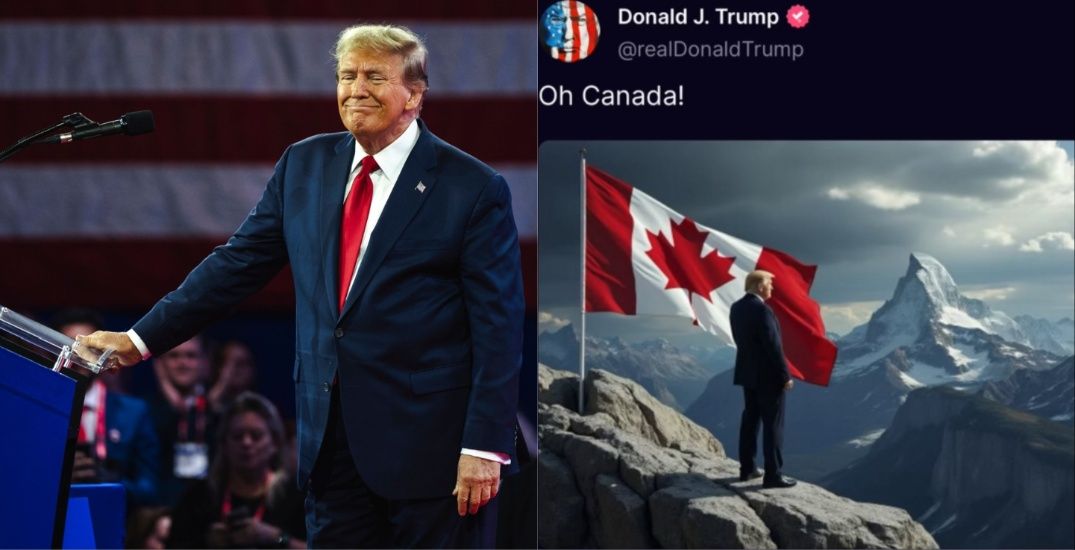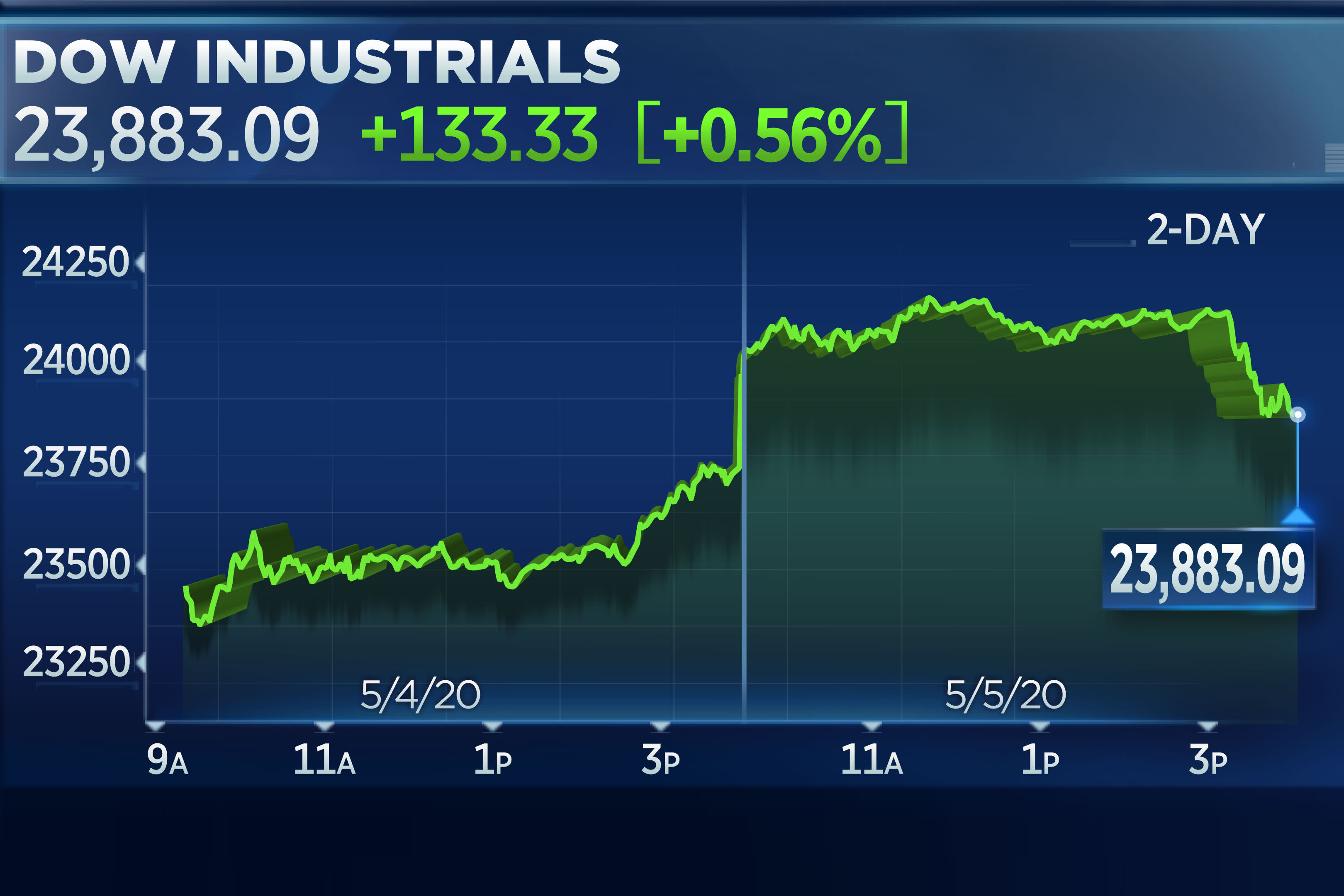Trump And Canada: Understanding The "51st State" Controversy

Table of Contents
Historical Context: Examining Past Annexation Attempts
The idea of the US annexing Canadian territory isn't new; it's rooted in a history of expansionist ambitions. Understanding this historical context is crucial to grasping the implications of the "51st state" rhetoric during the Trump era.
- The War of 1812 and its implications: This conflict, though ending in a stalemate, solidified the border between the US and British North America (which later became Canada), but didn't extinguish American desires for further expansion northward. The unresolved issues of the war left a lingering tension that resurfaced in later annexation discussions.
- Manifest Destiny and its influence on US expansionist views: This 19th-century belief in the divinely ordained right of the US to expand its dominion across North America fueled numerous attempts to acquire Canadian territory. The ideology provided a powerful justification for expansionist policies, influencing political discourse for decades.
- Early 20th-century proposals for annexation and their rejection: Even after the War of 1812, various proposals for annexation surfaced, particularly during periods of strained relations between the US and Great Britain. However, these proposals were consistently rejected by Canada, reflecting a strong desire for self-determination.
- Significant figures and events: Figures like James Monroe and his Monroe Doctrine, while not explicitly focused on Canada, reflected a broader American ambition to dominate the Western Hemisphere. These historical currents contributed to the underlying tensions that would later resurface under Trump.
Trump's Rhetoric and its Impact on US-Canada Relations
Donald Trump's presidency witnessed a significant escalation in rhetoric concerning the US-Canada relationship, often veering into territory that fueled the "51st state" narrative. His actions and statements had a tangible effect on bilateral relations.
- Examples of Trump's comments regarding trade deals (USMCA renegotiation): Trump's aggressive approach to renegotiating NAFTA (rebranded as USMCA) created significant friction with Canada. His public criticisms of the deal and threats to withdraw created uncertainty and damaged trust.
- Criticisms of Canadian policies and their impact on bilateral relations: Trump frequently criticized Canadian trade policies, dairy quotas, and lumber exports, escalating tensions and jeopardizing the long-standing economic partnership. These attacks were perceived as undermining Canadian sovereignty and economic interests.
- The role of media coverage in amplifying the controversy: Media coverage, both in the US and Canada, played a crucial role in amplifying Trump's rhetoric and shaping public perception. The "51st state" narrative gained traction through news reports and commentary, further exacerbating tensions.
- Reactions from Canadian officials and the public to Trump's statements: Canadian officials responded with a mix of diplomacy and firm resistance, defending Canadian interests and sovereignty. The Canadian public largely viewed Trump's statements with skepticism and concern, reinforcing a sense of national identity distinct from the US.
Economic Considerations: Weighing the Pros and Cons of Annexation
The economic implications of Canada becoming the "51st state" are complex and far-reaching, with potential benefits and drawbacks for both nations.
- Potential trade implications – increased integration vs. economic disruption: While increased economic integration might seem beneficial, the transition process could cause significant disruption, potentially impacting supply chains, trade agreements, and market stability.
- Impact on Canadian industries and the job market: Certain Canadian industries could benefit from increased access to the larger US market, while others might face increased competition, leading to job losses or restructuring.
- The role of the Canadian dollar and its potential fluctuations: Annexation would likely cause significant volatility in the Canadian dollar, impacting businesses, investors, and consumers.
- Implications for resource management and access: Control and management of natural resources, including energy and water, would become a major point of contention, necessitating new regulatory frameworks and potentially leading to conflicts over access and distribution.
Political and Social Implications: A Unified Nation or Cultural Clash?
Beyond economics, the political and social implications of annexation are profound.
- The impact on Canadian identity and sovereignty: Annexation would fundamentally alter Canadian national identity and sovereignty, potentially sparking widespread resistance and resentment.
- Potential political representation challenges within a unified nation: Integrating Canada's political system into the US would be a complex undertaking, raising questions about representation, political power, and the balance of interests.
- Cultural differences and their influence on societal integration: The distinct Canadian culture, with its bilingualism and unique social fabric, would face considerable pressure to assimilate into the predominantly English-speaking US culture. This could lead to social friction and cultural clashes.
- Analysis of potential public opinion shifts in both countries: While support for annexation might exist in certain segments of both populations, it is unlikely to achieve widespread acceptance, given the strong sense of national identity in both countries.
The Future of US-Canada Relations: Beyond the "51st State" Debate
The "51st state" debate, while largely dormant since the end of the Trump presidency, underscores the fragility of the US-Canada relationship and the need for ongoing dialogue and cooperation.
- Post-Trump administration relations and changes in rhetoric: The Biden administration has sought to repair the relationship, emphasizing cooperation and mutual respect. The tone and rhetoric have shifted significantly, reflecting a renewed commitment to collaboration.
- The ongoing importance of bilateral trade and cooperation: Trade remains a cornerstone of the US-Canada relationship, highlighting the importance of continued collaboration on economic issues.
- Areas of continued potential conflict and collaboration: Areas of potential conflict include environmental regulations, resource management, and immigration, while areas of collaboration include defense, security, and scientific research.
- Predictions for the future of the US-Canada relationship: The future of the US-Canada relationship will depend on maintaining strong diplomatic ties, addressing shared challenges, and fostering mutual respect. Continued dialogue and cooperation are essential for navigating future potential conflicts.
Conclusion
The "51st state" controversy, largely fueled by Donald Trump's presidency, highlights the complex and often volatile nature of the relationship between the United States and Canada. While the idea of annexation remains highly improbable given the political, economic, and social realities, it serves as a stark reminder of the enduring tensions and potential for conflict between these two North American neighbors. Understanding the historical context, political rhetoric, and economic implications is crucial for navigating the future of US-Canada relations and preventing similar controversies from arising. Further research into the intricacies of "Trump and Canada" relations will undoubtedly continue to illuminate this vital geopolitical dynamic. Continue exploring the complexities of the "Trump and Canada" relationship to fully understand this crucial chapter in North American history.

Featured Posts
-
 Beyonces Butt Flashing Levis Ad Sparks Frenzy Among Fans
Apr 30, 2025
Beyonces Butt Flashing Levis Ad Sparks Frenzy Among Fans
Apr 30, 2025 -
 Ypologistes Inon I Epomeni Genia Stin Parakoloythisi Tis Ygeias
Apr 30, 2025
Ypologistes Inon I Epomeni Genia Stin Parakoloythisi Tis Ygeias
Apr 30, 2025 -
 Tina Knowles Brow Tutorial Achieving Blue Ivys Flawless Look
Apr 30, 2025
Tina Knowles Brow Tutorial Achieving Blue Ivys Flawless Look
Apr 30, 2025 -
 Norovirus Sickens 200 On Queen Mary 2 Cruise Ship Latest Updates
Apr 30, 2025
Norovirus Sickens 200 On Queen Mary 2 Cruise Ship Latest Updates
Apr 30, 2025 -
 Amanda Owen Discusses Post Divorce Goals And Plans
Apr 30, 2025
Amanda Owen Discusses Post Divorce Goals And Plans
Apr 30, 2025
Latest Posts
-
 Jalen Hurts Skips White House Visit Amidst Trumps Tush Push Remarks
Apr 30, 2025
Jalen Hurts Skips White House Visit Amidst Trumps Tush Push Remarks
Apr 30, 2025 -
 Will Tariffs Replace Income Taxes Examining The Economic Realities
Apr 30, 2025
Will Tariffs Replace Income Taxes Examining The Economic Realities
Apr 30, 2025 -
 Stock Market Today Analyzing Dow Futures And Latest Earnings News
Apr 30, 2025
Stock Market Today Analyzing Dow Futures And Latest Earnings News
Apr 30, 2025 -
 Jalen Hurts White House Absence Trumps Comments And The Eagles Celebration
Apr 30, 2025
Jalen Hurts White House Absence Trumps Comments And The Eagles Celebration
Apr 30, 2025 -
 Live Stock Market Updates Dow Futures Earnings Reports And Key Indicators
Apr 30, 2025
Live Stock Market Updates Dow Futures Earnings Reports And Key Indicators
Apr 30, 2025
